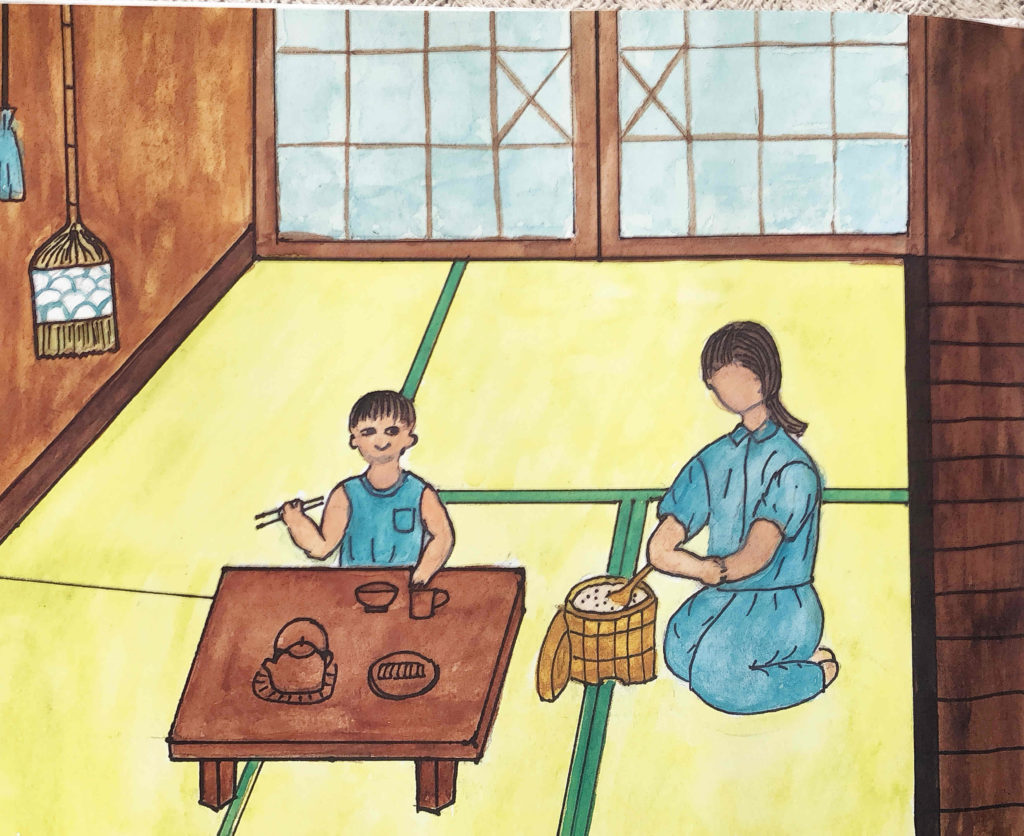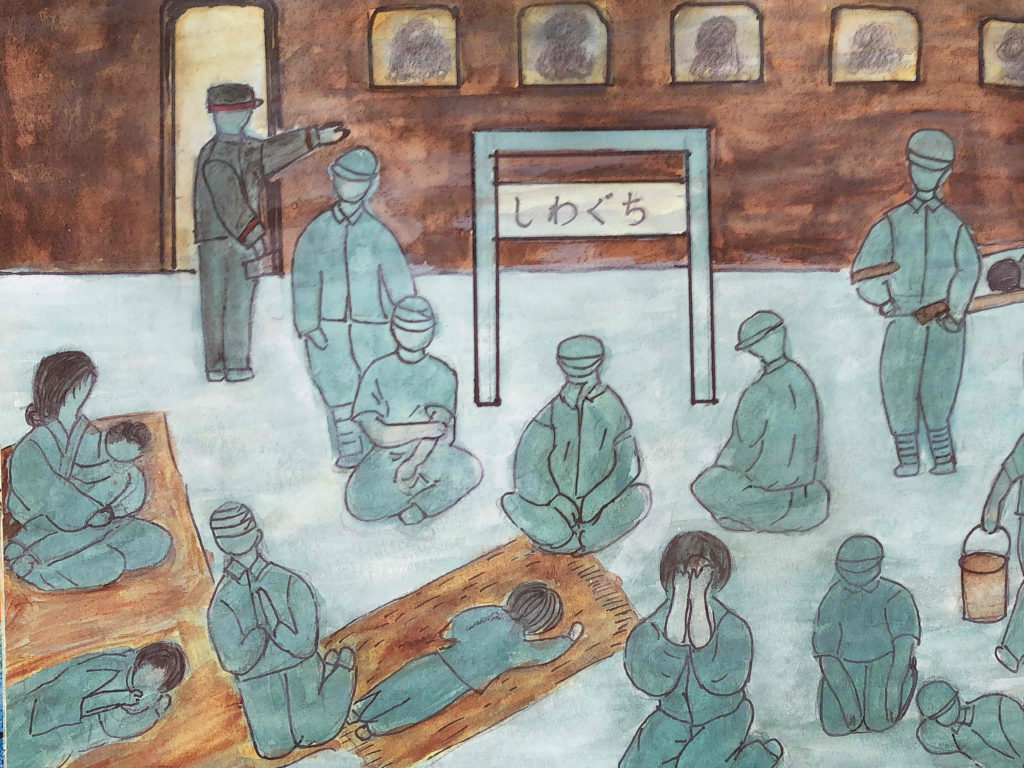Kiyomi Kono
I can’t forget, and we must never forget.
2. August 6, 1945
By this time, Toshikatsu was long gone to the war front, Sumiko was married to a man in Hiroshima City, and Midori was working as a nurse in the Red Cross Hospital, living in its dormitory. There were five of us living together in our home then—my parents, me, a second-year secondary school student, Kazuhiko, a third-year elementary student, and Katsuya, Sumiko’s three-year old son. Sumiko had evacuated him to us in the village in fear of air-raids in the city.
On August 6, my parents were away from home, mobilized to work in Yoshida (present Akitakata city.) Adults from our neighborhood were constructing an air base for the special kamikaze attack corps. The construction of the Kabe Naval Air Base in Yoshida secretly started in late-June that year. After Shuri Headquarters of the 32nd Army in Okinawa fell at the end of May, and General Mitsuru Ushijima committed suicide on June 23, Japan had to get ready for the coming decisive battles on the mainland by hurriedly building new air bases for the special attack corps. Around 150,000 people were mobilized from neighboring cities, towns and villages for this rush construction, staying at nearby temples and local residents’ houses. People of our village met together at the middle of the night and left for Yoshida on foot, which was located over 20km away from our village. Because of my parents’ absence from home, I skipped school and stayed home to look after my younger brother and little nephew. There were three in our house on that day.
On the morning of August 6th, my younger brother Kazuhiko was playing outside, and I was helping my little nephew Katsuya to eat breakfast. All of a sudden, I heard a strong metallic blasting sound. Surprised, I ran out of the house barefoot. It was so loud that I thought a bomb had fallen near our house. After a while, I saw volumes of smoke silently climbing into the sky of the central area of Hiroshima City. Smoke is usually white, but that giant one was brownish. It quickly expanded widely in the upper sky and became a mushroom cloud. I wondered if a storehouse of gun powder or something in Hiroshima City had exploded. Many people call the A-bomb “pikadon” due to its flashing light and roaring sound, but I didn’t see any light because I was inside the house.

In front of our house, trains of the Geibi Line of the Japanese National Railways ran about once an hour. Even if we had no clocks, we could learn from the sound of the running trains that it was time to leave for school, or that it was time to prepare meals. On that morning, there were no trains running. It was in the evening that the first train of the day arrived at Shiwaguchi Station, about 30 minutes’ walk from our house. I heard the train had carried many people with severe burns and injuries. All of those horribly injured said, “A big bomb was dropped on Hiroshima,” or “Hiroshima has perished.” The rumor spread all over the village in no time. In those days, military police were keeping a secret watch. They hardly missed any negative words as to the war, such as “Japan got attacked.” To avoid being overheard by them, people talked of the bombing on Hiroshima in whispers. However, even under that circumstance, everybody knew of the bombing because most of the families in the village had some family members who went to Hiroshima City daily to school and to work.
Late that night, my parents came home from Yoshida, where they had been mobilized. Neighbors told them that Hiroshima had been totally destroyed by a big bomb dropped on the city, and many injured people on the trains had arrived in the village. Hearing that, my father hurried to the station to find out about the situation. There, he was shocked to see the victims there. They were almost naked with tattered clothes, and their entire bodies were covered with blood. All of them said that there was no one left alive in Hiroshima. When he came home, he said to me, “Go to Hiroshima with your mother to search for Sumiko and Midori tomorrow. I can’t go because I will be busy in taking care of things in the village.” After her marriage, Sumiko lived in Ujina (present Ujina, Minami-ku) and Midori was working as a nurse in Red Cross Hospital in Senda-machi (present Senda-machi, Minami-ku).
